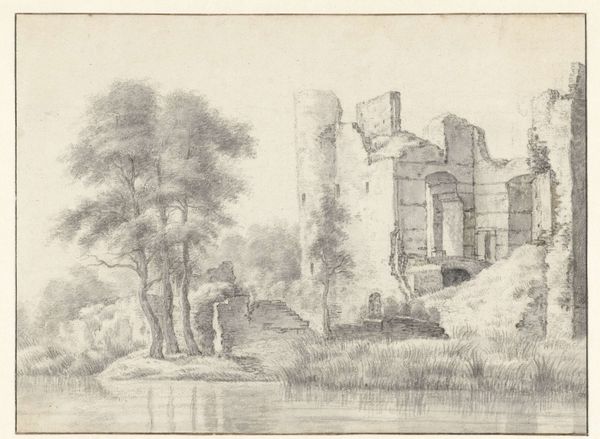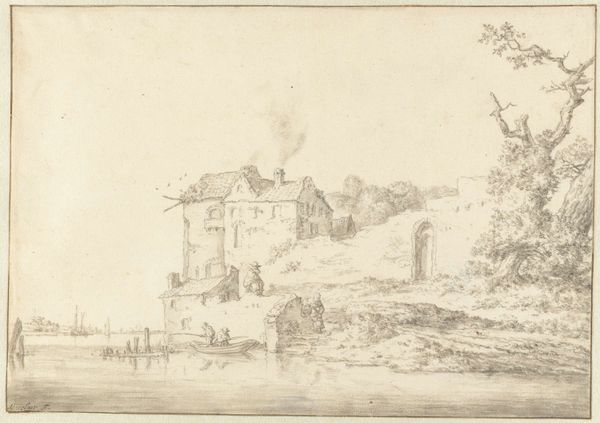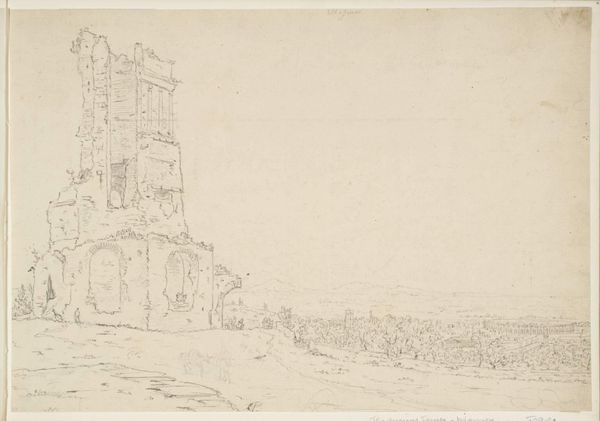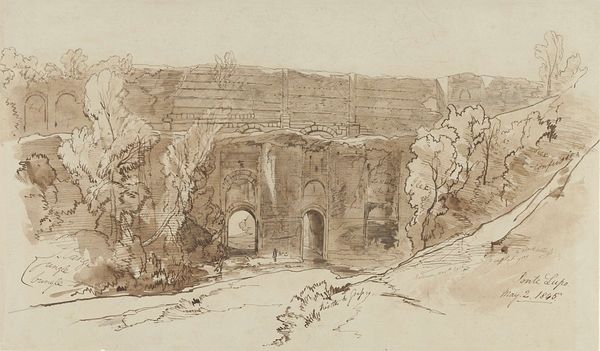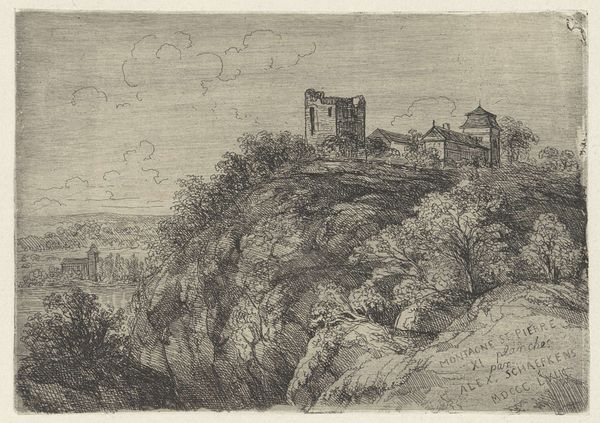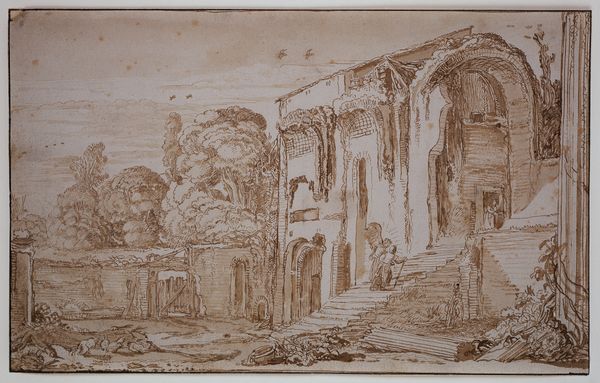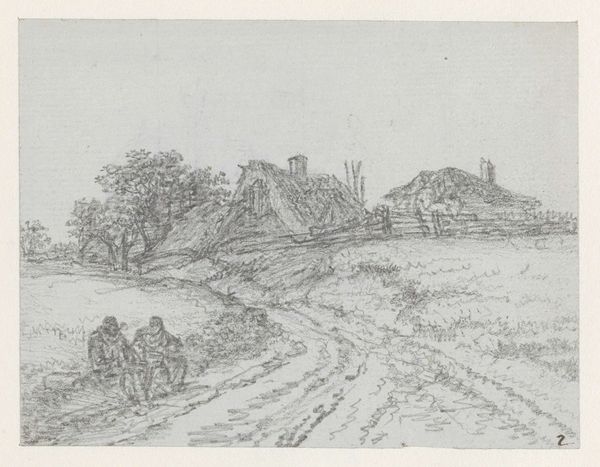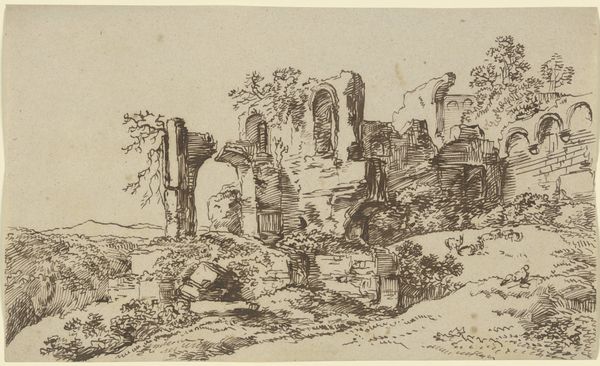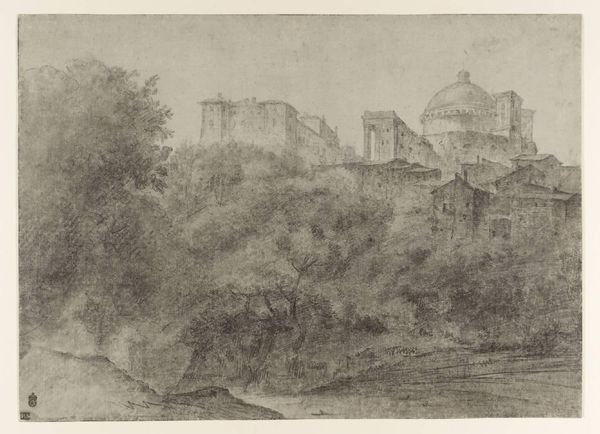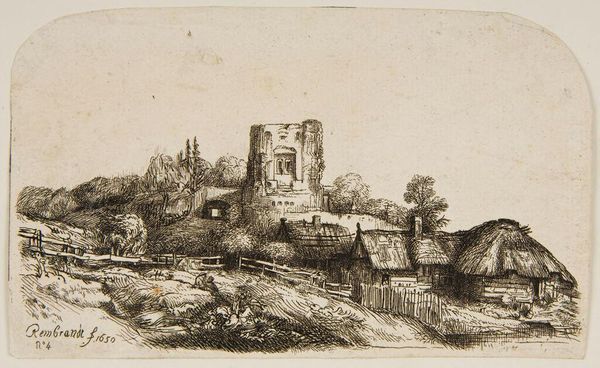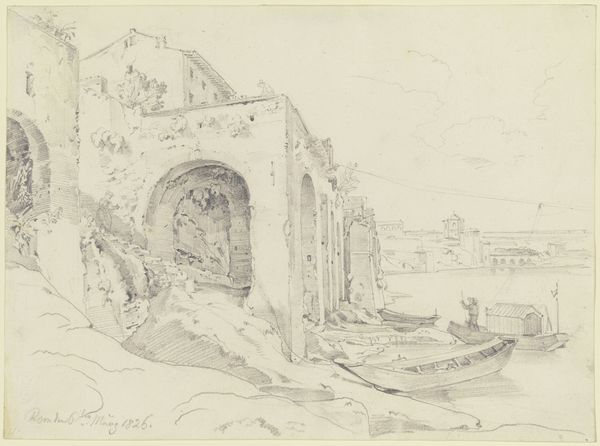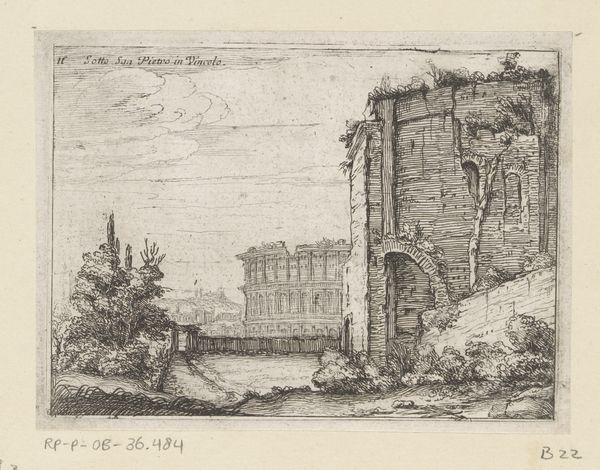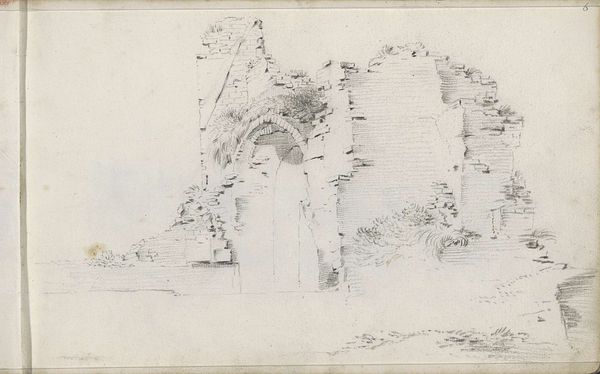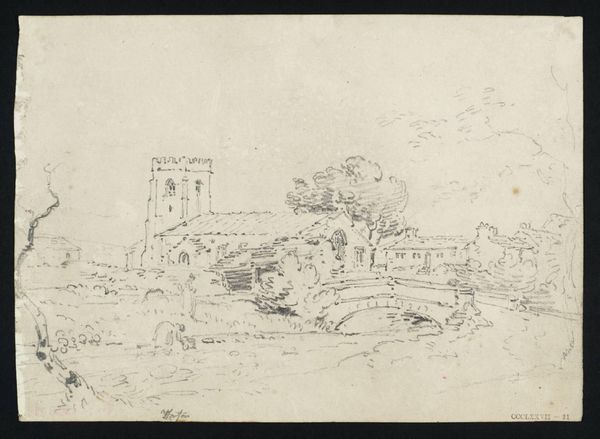
drawing, pencil
#
drawing
#
pencil sketch
#
landscape
#
pencil drawing
#
ancient-mediterranean
#
sketch
#
pen-ink sketch
#
pencil
#
neo-romanticism
#
line
Copyright: Public domain
Eugène Delacroix captured the Kiosk of Trajan at Philae in this evocative sketch. Delacroix, a leading light in the Romantic movement, made the sketch during a period when European artists were increasingly drawn to the "Orient," seeking inspiration beyond Western traditions. The Kiosk itself, an ancient structure on an island in the Nile, symbolizes a complex layering of histories and power dynamics. Built during Roman rule in Egypt, its presence speaks to the ebb and flow of empires, the fusion of cultures, and the lasting imprints of colonial ventures. Delacroix's sketch, in its intimate scale, invites us to reflect on the nature of cultural appropriation and the gaze through which the West has often viewed the East. Consider the emotional resonance of a ruin, of what remains after empires crumble. The sketch is a study in contrasts: permanence and transience, power and decay, presence and absence. It is a visual poem that connects Delacroix's artistic journey to a broader narrative about identity, history, and the enduring legacy of cultural exchange.
Comments
No comments
Be the first to comment and join the conversation on the ultimate creative platform.
